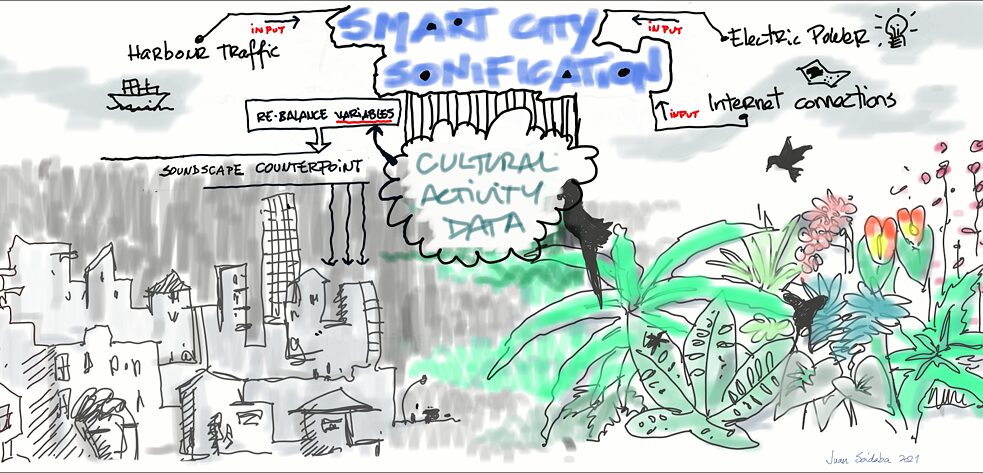
Smart City Sounds
By Sara LenziEfficiency is the most common word, the most common mental image that comes to mind when talking about Smart Cities. A fast googling of the semantic couple Smart City + Efficiency presents the reader with 213 million results in 0.56 seconds. Energy efficiency, traffic management efficiency, efficiency of data collection, storage, analysis and consequently, efficiency in taking better decisions ‘in order to maximize the life quality of city’s population’
Ben Sta, 2017Outside rhetorical and political discourse, the concept of efficiency has been widely debated in the past decade. In the field of Human Computer Interaction, scholars took the distance from this dominant paradigm, in favour of concepts such as participation and sharing. In information design, the role of the aesthetic experience of the audience has been highlighted to balance the predominance of data representations based on efficiency and efficacy as the main credo.
For Culture | Smart City, Sara Lenzi and Juan Sádaba, architect and urban planner, will investigate the highly efficient dimensions of the Smart City through the slightly inefficient method of data sonification.
Data sonification is the practice of using sound (instead of visuals) to represent and communicate data to an audience. As a method, it has been often described as less efficient than data visualization, still considered a better means of representing quantitative data in a dimensional space defined by Cartesian axis, a space in which we learn to orientate since primary school. Sound is, though, one of the most visceral sensorial experiences we humans are exposed to way before we learn to see. As an aesthetic experience, music is often considered one of the most intuitive, memorable, engaging cultural experience we can have.
Monthly data on energy, transportation and connectivity in the past ten years in Singapore will be sonified in order to design an acoustic portrait of the recent path towards the Smart City of the future. The sound material will be sourced from both artificial sounds and sounds of the rainforest, recorded by the author during her years in South East Asia. The transition (or better, the oscillation) between the two acoustic scenarios – the artificial and the natural – will be determined by the other, unavoidable element of the present as well as the future city, Culture.
The evolution of data on the past ten years’ of cinema attendance, libraries loans, visits to cultural and natural sites in Singapore will be used to morph the ‘efficient’ soundscape of the artificial Smart City into the perhaps inefficient but inescapable soundscape of the primary tropical forest in an attempt to portray the true dimension of human beings, natural and cultural at the same time, magnificently inefficient.
